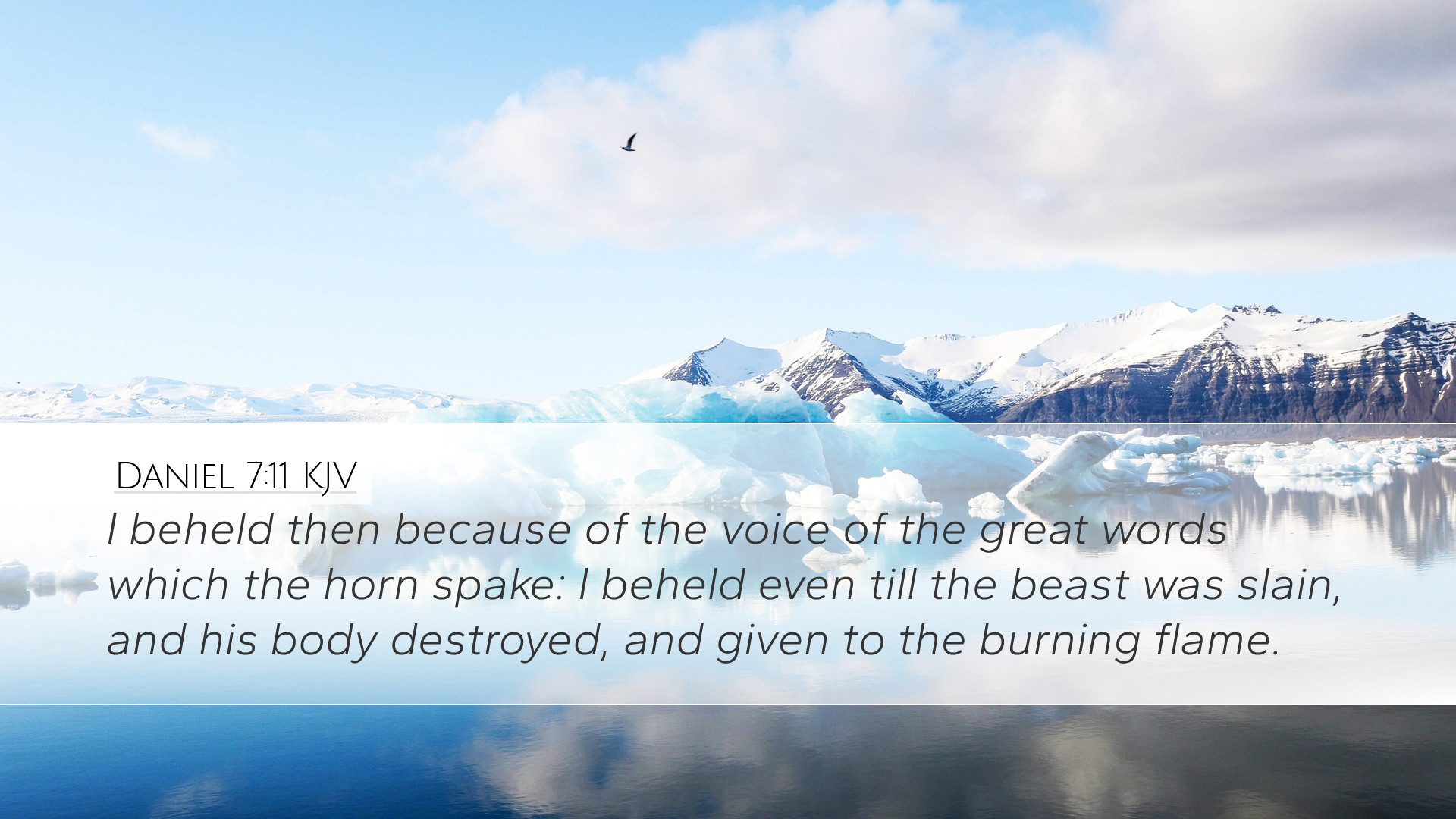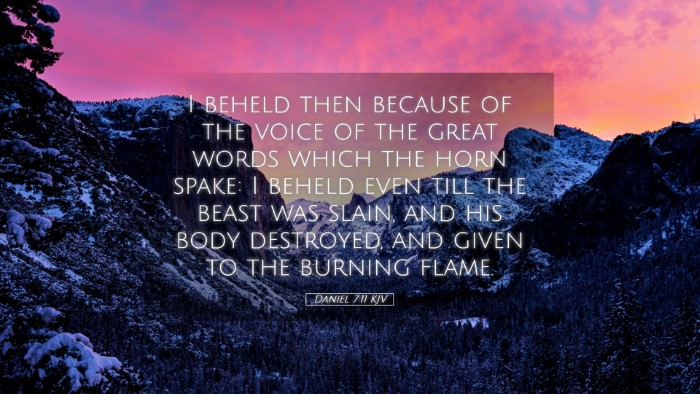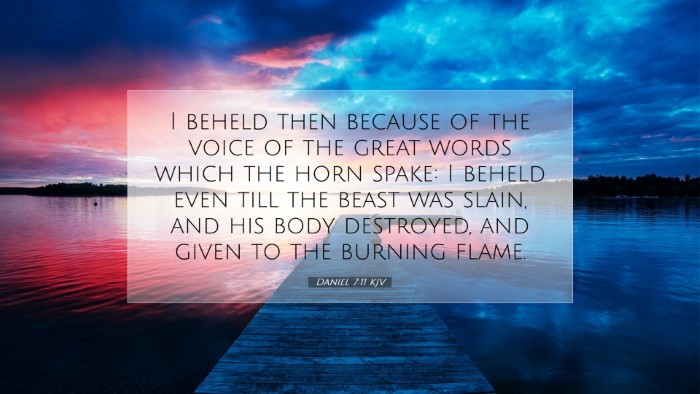Commentary on Daniel 7:11
Daniel 7:11 states: "I beheld then because of the voice of the great words which the horn spake: I beheld even till the beast was slain, and his body destroyed, and given to the burning flame." This verse is a powerful portrayal of God's ultimate judgment and triumph over evil, encapsulated in the prophetic vision Daniel receives. Below is a compilation of insights from prominent public domain commentaries that elaborate on the significance of this verse.
Introduction to the Context
In order to understand verse 11 fully, we must consider its placement within the broader context of Daniel chapter 7.
- Prophetic Vision: Daniel receives a vision of four great beasts, each symbolizing kingdoms that rise and fall. The fourth beast is particularly fierce, described as having iron teeth and ten horns.
- The Little Horn: Among these horns, a "little horn" arises, which speaks boastfully against God and persists in persecuting the saints.
Insights from Matthew Henry
Matthew Henry provides a rich exegesis, emphasizing several key aspects:
- The Voice of the Horn: The "great words" of the little horn represent blasphemous utterances against God. Henry notes that these declarations reflect an attitude of pride and defiance.
- The Judgment of the Beast: Henry states that God's judgment against this beast demonstrates His sovereign authority. The beast, as a symbol of oppressive kingdoms, meets its end in the divine fire as decreed by the Almighty.
- Hope for the Saints: The slaying of the beast serves as a reassurance to God's people. Henry posits that believers should find comfort in knowing that God will ultimately bring justice to His people.
Contributions from Albert Barnes
Albert Barnes approaches the verse with a focus on its theological implications:
- The Nature of the Beast: Barnes interprets the beast as representative of all oppressive powers throughout history, particularly those that oppose God's will. The beast becomes an archetype of tyranny and evil.
- The Divine Response: He emphasizes that God's judgment is not arbitrary but is a necessary response to the evil and wickedness manifested in the world. The destruction of the beast signifies the triumph of divine justice.
- Symbol of Eternal Triumph: Barnes highlights the flame as a symbol of eternal purification and judgment, suggesting that ultimately, no evil can withstand the holiness of God.
Insights from Adam Clarke
Adam Clarke provides a detailed analysis of the linguistic and prophetic nuances embedded in the passage:
- The Imagery of Fire: Clarke notes that fire is often used in scripture to symbolize God's judgment and holiness. The burning flame here represents the final judgment that will consume all that is opposed to God.
- The Perishability of Earthly Powers: He illustrates the transient nature of earthly kingdoms compared to the eternal nature of God's kingdom. The beast's demise is a foreshadowing of the ultimate establishment of God's reign.
- Encouragement for Resistance: Clarke encourages believers to stand firm against the 'little horn’—the personifications of evil in their lives—assuring them that God will avenge their struggles.
Application for Believers
The implications of Daniel 7:11 resonate profoundly in personal and communal contexts for believers today:
- A Call to Vigilance: Just as Daniel witnessed the rise of the little horn, believers are reminded to remain vigilant against forces that oppose the values of God's kingdom.
- Assurance of Justice: The promise of divine judgment serves as encouragement, affirming that God will address injustices and vindicate His people in His timing.
- Hope in Divine Sovereignty: Understanding that all earthly powers are temporary and that God reigns supreme fosters a mentality of hope and trust in divine sovereignty.
Conclusion
Daniel 7:11 serves as a profound reminder of God's ultimate authority over all earthly kingdoms and His ability to bring justice against those that oppose Him. The fears and trials that believers face in their walk with Christ are understood in light of God's victory, bringing both comfort and encouragement. As we reflect on this verse and the insights provided by Henry, Barnes, and Clarke, may we be fortified in our faith, knowing that the God we serve is not only sovereign but also just, merciful, and ever-present in our lives.


